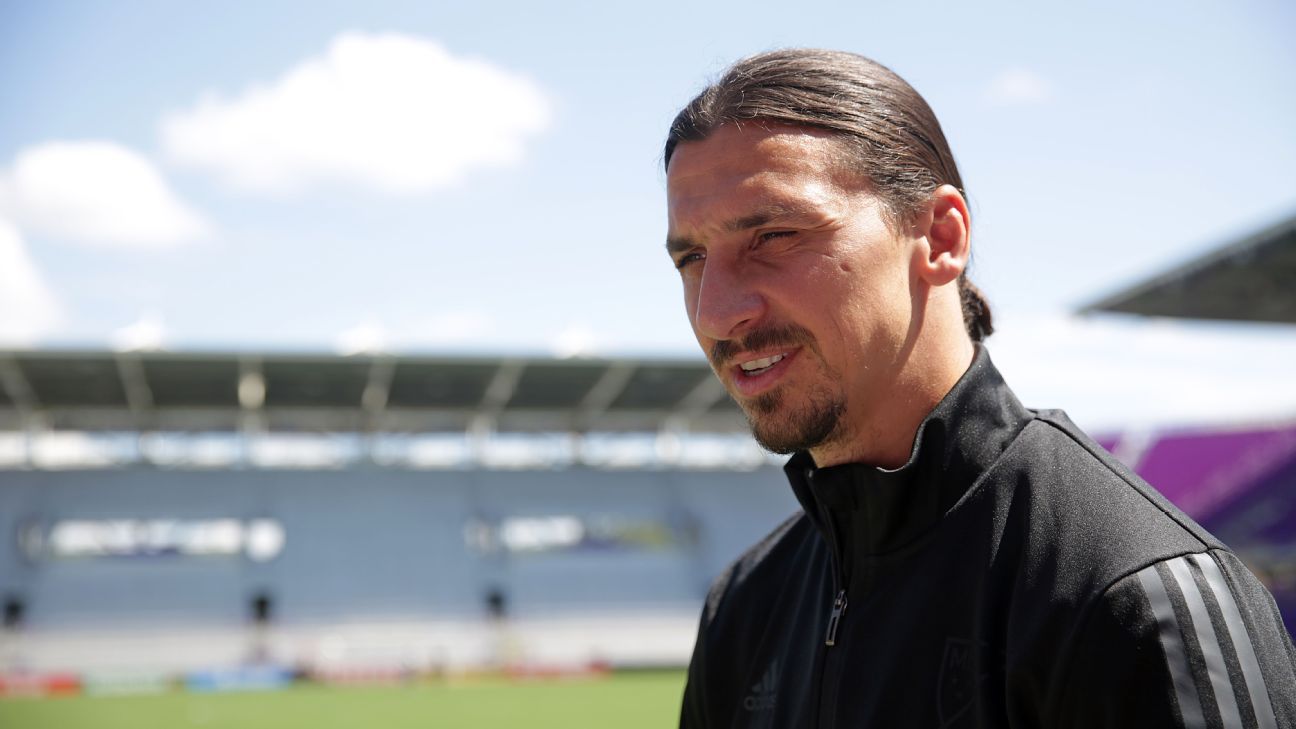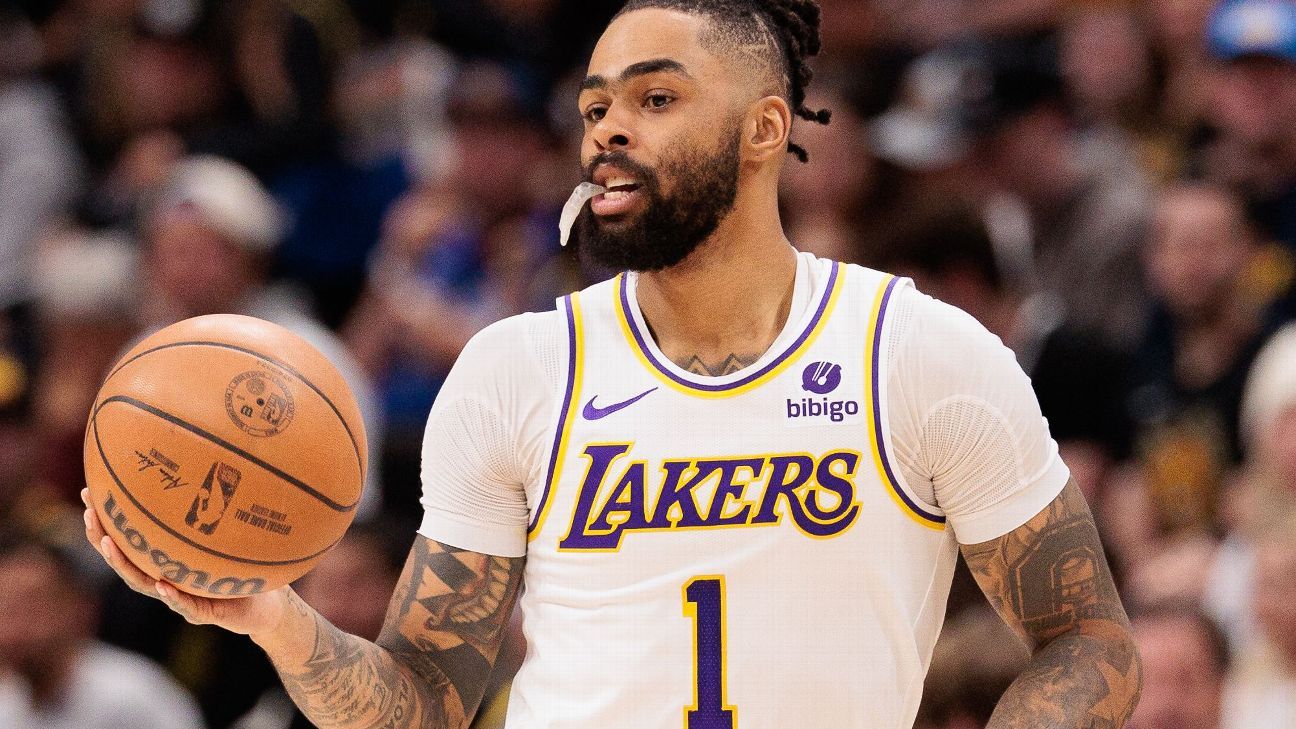
It's hard to recall the last 38-year-old striker returning from the U.S. to be fought over by serious European clubs. It's true that Zlatan Ibrahimovic is special, yet he's also part of a trend. The newly crowned winners of the Ballon d'Or awards, Lionel Messi and Megan Rapinoe, are 32 and 34, respectively. Cristiano Ronaldo turns 35 in February.
These aren't freakish exceptions, either: Football's ageing trend is broad and echoed in other sports. It seems that even though the game has got ever more demanding -- players make more sprints and cover more turf than a decade ago -- careers are lengthening. What is going on?
"Elite athletes are getting older," concludes sports scientist Carlos Lago Penas of the University of Vigo in a report for the Barcelona Innovation Hub, the research wing of Messi's club. He cites a paper he wrote with colleagues at Vigo (lead author: Anton Kalén) showing that the average age of players in the Champions League rose from 24.9 years in 1992-93 to 26.5 last season. A rise of 1.6 years is bigger than it might appear on paper, given that the average age of almost all leading teams runs in a narrow band from 23 to 29.
In tennis, the average age of the top 100 male players has also risen in a decade from 26.2 to an all-time high of 27.9. Today's three highest-ranked men are Rafael Nadal (33), Novak Djokovic (32) and Roger Federer (38), while 38-year-old Serena Williams remains arguably the best female player. The Vigo authors said that studies of baseball players and triathletes also suggest "a marked increase in the age of peak performance of elite athletes during the last two decades."
Careers have lengthened in part because the norms of sporting stardom have changed. Great footballers used to live like rock stars. They didn't earn fortunes, expected to be finished by the age of 30 and therefore lived large. The temptations of stardom were magnificent; succumbing was almost the point. Ferenc Puskas in the 1950s was overweight, George Best in the 1960s an alcoholic, and Johan Cruijff, the dominant player of the early 1970s, was a notorious chain-smoker. In the 1980s, Diego Maradona was overweight and struggled with cocaine addiction, while Ronaldinho was so fond of nightclubs that Barcelona sold him in 2008 partly because they worried he was influencing Messi, his hero-worshipping young teammate.
In the past, stars also got kicked ... a lot. In 1966, Pele limped out of the World Cup. In 1983, Maradona's ankle was crushed by the Basque defender Andoni Goikoetxea, who was known as "the Butcher of Bilbao". Marco van Basten limped away from the game aged 28 in 1992 and barely played again. Medical care often consisted of a "physio" (typically, a retired player) rubbing his "magic sponge" over an injury. Operations were relatively primitive, so broken legs were often career-ending.
What transformed the star's time on top was, in large measure, television and, later, advances in science. In the 1990s, Rupert Murdoch and Silvio Berlusconi built private TV channels around football in Britain (Sky) and Italy (Mediaset). Now that stars were TV content, they needed protection in order to keep the product entertaining. Football's authorities cracked down on fouls, banning the slide tackle from behind. For most of his career, Messi in particular earned free-kicks almost every time he got so much as touched by an opponent.
Big clubs also made new deals with star players: we'll pay you fortunes to live like professionals. Ibrahimovic once said that if you have his talent, success is a choice: you just have to decide to work for it. Stars increasingly do, and their clubs' medical departments have got better at looking after them.
Almost a decade ago, Ryan Giggs, Javier Zanetti and Paolo Maldini all played until they were 40. The leader in footballer well-being at the time was the "Milan Lab" in Italy. "If you can predict the possibility of injuries," the AC Milan lab's director Jean Pierre Meersseman told me in 2008, "you stop the player before." The Lab collected millions of data points on computers for every single player. Meersseman crowed: "The extent of non-traumatic injuries has been reduced by over 90 percent, compared with the previous five years." The maximum possible age for a top-class footballer, he added, had risen to "around 40. It used to be 34 at most."
Players have been getting even healthier since then. Some, such as Jermain Defoe, Chris Smalling and Hector Bellerin, are now vegans. Footballers get individualized training and wear GPS devices that provide regular stats on their work rate. They take daily saliva tests to measure their physical condition, and fill in questionnaires about each night's sleep quality.
All these advances have helped Messi and Ronaldo dominate the game for longer than any other previous greats. The Argentinian has now won six Ballons d'Or, Ronaldo five; before them, the individual record was three. The only intruder in their dual hegemony of the past decade was Luka Modric, in 2018, when he was 33. No current player aged under 32 has ever won the award.
Is David de Gea suffering from a crisis of confidence?
Shaka Hislop explains what went wrong on David de Gea's keeping blunder against Watford.
Of course, today's footballers still experience physical decline. Lago Peñas cites a study of German Bundesliga players: After 30, their number of sprints (defined as runs faster than 6.3 meters per second, maintained for at least a second) was 21 percent lower than those of younger players. Messi, who in his youth was a great ball-winner, now leaves that to others: Arturo Vidal's job in the Barça team is to serve as, essentially, Messi's legs. With one player spectating when the other team has the ball, Barcelona can rarely play their trademark pressing game anymore.
There's another advantage to keeping players playing longer: for teams big and small, healthy veteran footballers can be the perfect combination of old heads on not-so-old legs. Decision-making and game intelligence seem to improve with age, writes Lago Peñas: "The percentage of successful passes is 3-5 percent higher in players over 30 compared to players between 16 and 29 years old."
Mathematician David Sumpter, author of the book "Soccermatics," has analysed Messi's extraordinary "spatial reasoning." The Argentinian often runs just 4 or 5 kilometers a game, but every step counts. Typically, he aims to arrive in a particular spot: the space just outside the semi-circle at the top of the penalty area, the "highest-value" place on the field. Often, he'll simply walk there. When he does run, his Barça teammates know that his first run is a decoy, designed to fool opponents. He'll then pause and make a second run to the spot where he really wants to be. Only then will a teammate pass to him.
Alternatively, Messi will run and then stop -- so suddenly that his marker keeps going for a step or two -- in exactly the targeted place, and receive possession there. Astoundingly often, the world's best player gets the ball unmarked and -- so remarkable is his timing -- just as his nearest opponent is facing away from him. His decision-making compensates for his fading acceleration.
Tennis players also tend to improve their spatial reasoning and anticipation with age. Federer told me this year, "At 20, there's a great point, and you're like, 'This one, I'm going to crush so hard, I'm actually going to make a hole into the ground.' At 37 you're like, 'Hmm, I'm probably going to first hit it there, then manoeuver the guy around, and somehow work my way to the net and finish off with a nice volley."
Everyone's performance eventually declines. As the general manager at one sports club told me, athletes are like "blocks of ice." They're all melting, and their clubs try to offload them before only a puddle of water remains. The melting process may now finally be affecting Ronaldo, who (excluding penalties) has scored just 12 goals in 20 Serie A and Champions League games this season -- low, by his lofty standards -- though partly that's because Juventus's new-found attacking style under new coach, Maurizio Sarri, limits the scope for his beloved counterattacks.
Many older players, including Rapinoe, end up picking their matches. The Milan of a decade ago decided that with an old team, its best bet was to shoot for the Champions League and disregard the grind of Serie A. Filippo Inzaghi (who scored his final goal in his final game for Milan aged 38) might be told, for instance, "You're playing in 10 days." He'd then summon his mamma to come and take care of him, spend days gathering energy on the couch, peak on the night and collapse afterwards.
Didier Drogba and Michael Ballack in their latter days at Chelsea were similar. Ballack could no longer perform every match, and instead aimed to peak in big matches. Likewise, Drogba will always be remembered at Stamford Bridge for his hero's role in the Champions League final of 2012, aged 34, but by that point in his career he was no longer excelling week in, week out. Later, playing in Major League Soccer, the Ivorian tried to stay healthy by avoiding games on artificial turf, as did Thierry Henry.
A more lifelong case of choosing his moments was the chronically injured Spurs defender Ledley King. If he participated in a full training session, his knees would swell up with liquid. Instead, he often spent the week on an exercise bike or in the pool, then went out and shone on the park.
The concept of peaking may now be spreading more widely. In basketball, NBA teams are increasingly using "load management": making even younger players sit out games so as to preserve their bodies.
More occasional excellence may be in Ronaldo's and Messi's future. Mind you, when the latter picked up his latest Ballon d'Or on Dec. 2, he sounded upbeat about the future: "I feel better than ever on a physical and personal level, so hopefully I can stretch it out a lot more." He probably can, too.














 Phone: (800) 737. 6040
Phone: (800) 737. 6040 Fax: (800) 825 5558
Fax: (800) 825 5558 Website:
Website:  Email:
Email: 






